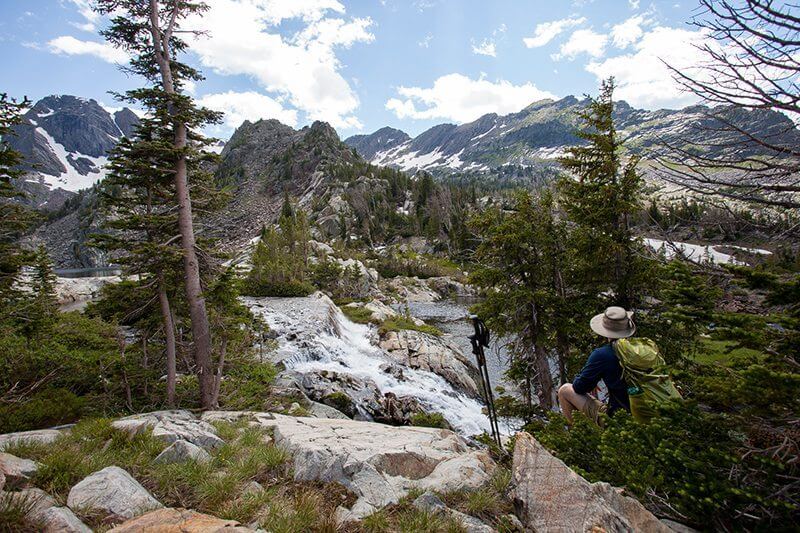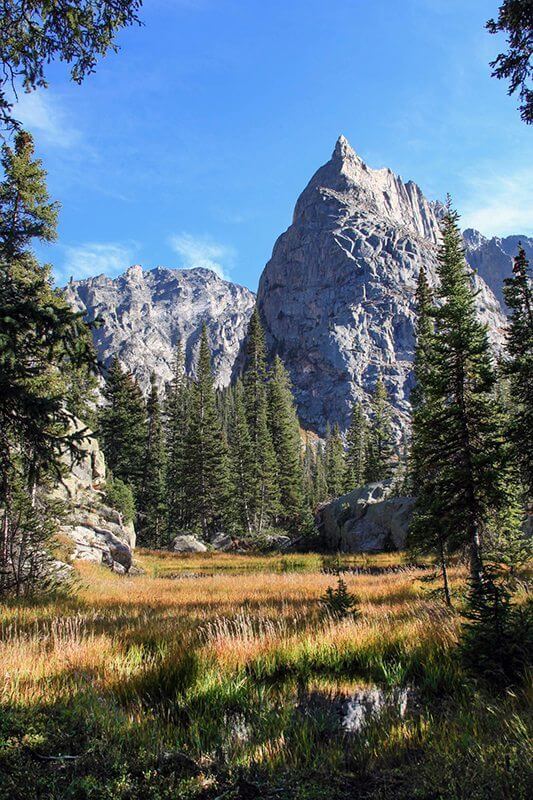U.S. House hearing on GOP bill opening all Wilderness areas to bikes and other wheeled contraptions is Thursday, December 7th
For more information, please contact:
Vance Martin, WILD Foundation, vance (at) wild.org
Kevin Proescholdt, Wilderness Watch, 612-201-9266, kevinp (at) wildernesswatch.org
A broad coalition of 133 conservation and Wilderness organizations from across America have asked Congress “to reject an unprecedented call to amend the Wilderness Act to allow for the use of mountain bikes in designated Wilderness.”
The sign-on letter from the 133 organizations was prepared ahead of a December 7th hearing in the U.S. House’s Subcommittee on Federal Lands on a Republican-sponsored bill (H.R. 1349) which would open up all of America’s 110-million acres of Wilderness to mountain bikes and other wheeled contraptions.
“For over a half century, the Wilderness Act has protected wilderness areas from mechanization and mechanical transport, even if no motors were involved with such activities. This has meant, as Congress intended, that Wildernesses have been kept free from bicycles and other types of mechanization and mechanical transport,” the 133 organizations wrote Congress in a sign-on letter prepared for the December 7th hearing.
A copy of the letter to Congress signed by 133 conservation groups can be viewed here.
“This bill strikes at the core of what wilderness is about, and threatens the heart and letter of the Wilderness Act of 1964,” says Vance Martin, President of WILD. “The Act is very clear about not allowing mechanical access. Access only by foot, on horseback, or in a canoe is a distinguishing characteristic and what makes wilderness distinct from other protected areas, and thereby better able to safeguard ecological services and biodiversity, and provide solitude and contemplation.”
In the letter to Congress, the 133 conservation groups point out:
“In a seemingly cynical attempt to use people with disabilities as a justification for the bill, the legislation lists ‘motorized wheelchairs’ and ‘non-motorized wheelchairs’ as the first uses to be authorized in the bill (even prior to the listing of ‘bicycles’), despite the fact that the 1990 amendments to the Americans with Disabilities Act (ADA) have allowed wheelchairs in designated Wilderness for more than a quarter-century.”
HR 1349 supporters erroneously claim that mountain bikes were allowed in Wilderness until 1984, but then banned administratively by the U.S. Forest Service. This claim is simply not true.
“The 1964 Wilderness Act (36 U.S.C. 1131-1136) banned all types of mechanized transport, including bicycles, in designated Wilderness. Section 4(c) of that act states, “[T]here shall be…no use of motor vehicles, motorized equipment or motorboats, no landing of aircraft, no other form of mechanical transport, and no structure or installation within any such area.” (italics added)
“Mountain bikes are exactly the kind of mechanical devices and mechanical transport that Congress intended to keep out of Wilderness in passing the Wilderness Act. Bicycles have their place, but that place is not inside Wilderness areas,” explained Kevin Proescholdt, Conservation Director of Wilderness Watch, a moving force behind opposition to this bill.
“We believe that this protection has served our nation well, and that the ‘benefits of an enduring resource of wilderness’ would be forever lost by allowing mechanized transport in these areas,” the 133 conservation and Wilderness protection organizations wrote Congress.
ADD YOUR VOICE!
Email the House Natural Resources Committee: https://naturalresources.house.gov/contact/
State your opposition TODAY to HR 1349 — no bikes or other mechanized access to wilderness!



I do not live in America. I live in South Africa and my environment mentor Dr Ian Player would have been appalled at this proposal. Wilderness has to be kept sacrosanct. Do Not Allow Bikes in these conservation areas.
I think I still live in America, though hard to tell by all that is taking place around us these days. I think Ian would be appalled by much that is being unraveled with our US environment. Luckily WILD is doing their best to keep us informed so we can speak up in the hopes others will listen.
The VROC (vegan raisin oatmeal cookie) is what we need to be working on beyond Trump this 21st century. It’s an analogy. The raisins are the cities and agriculture areas; the oatmeal is the species’ forest, grasslands, deserts, rivers, mountains and seas as far as the eye can see between the cities and; VEGAN IS THE PROVEN TECHNOLOGY which will get us there. A species’ forest is not a wild area. A species’ forest is their forest. A species’ forest is of, by and for, all the other native plants, animals, fungi and soil microbes which have occupied that place. For this Species’ Planet to survive there is no win-win; nature always loses. The VROC literally separates, with physical and legal boundaries, the cultural from the natural landscapes so that both will survive on their Species’ Planet.
Of all the critically important challenges ecosystems face today, I question whether bikes traveling on established paths is most pressing. The WILD Foundation does amazing work; is this really the best use of limited resources? The impact of bicycles is minor, especially compared with deforestation, mining, poaching, climate change, etc.
Further, allowing people to explore and and connect with nature, even if by bicycle, leads to greater respect for our parks and conservation land. We need more people to feel connected to our public lands to prevent the large-scale roll-back of protections the Trump administration is pushing.
We should educate cyclist about the harms of riding trails when wet or skidding around corners, for example, but we shouldn’t ban them completely. Cyclist can be valuable allies in the fight against much more significant threats.
I cam to donate to the WILD foundation but the the fact this is the front page priority makes me reconsider.
Hey Cam, thanks very much for taking the time to write your concerns and to also compliment WILD’s work. Thanks also for your willingness to donate, and of course I leave that to your heart…in any case, thank you for the thought!
I’m a mountain biker as are several others in our small office. So…our position on this issue is taken with great thought and consideration. To save your time, I’ll do a shortish answer here, because it is something we have thought long and hard about for decades, in this country and around the world when this issue arises. I’ll just make it in points:
1. Yes, there are a lot of serious challenges facing humanity and wilderness…We/I/our collaborators deal with all those you mentioned, every day, and in some tough places sometimes. An issue just as serious but not as obvious, is the slow degradation of wilderness quality and the wilderness experience….bit by bit…that occurs every day with changed access, climate, etc.
2. The 1964 Wilderness Act forbids bikes and other forms of “mechanical transport” in federal wilderness areas. To allow in bikes would set into motion a precedent that would encourage further efforts to open up these wild places — yes, that’s is what would happen, believe me — threatening both the wilderness quality, the experience of the vast majority of wilderness users, and the very idea of wilderness that the law expresses: “where the earth and its community of life are untrammeled by man, where man himself is a visitor who does not remain.” It would, in essence, be one slow movement down the scale of wilderness solitude, reflection, and other values.
3. But that doesn’t mean we can’t enjoy the outdoors on bikes or off-road vehicles. Paraphrasing friend and colleague, Doug Scott, there are plenty of other places to go to do that. In Moab, for instance, there are an abundance of outdoor recreation opportunities, including mountain biking. This is also true in the Adirondacks and across the United States. More than 600 million acres have been set aside as national parks, forests and other federal lands. Of that, 109 million acres ARE federal wilderness, with its extra layer of safeguarding. The vast majority of the rest is available to cyclists.
4. We set aside wilderness areas to protect them specifically for what they are and to save those qualities — they are wild places, untrammeled (as much as possible!) by man, invoking not only a great experience now but also evoking a reminder of when our world was a very different, undeveloped place. There isn’t much wilderness left, and we should leave it as undisturbed as possible. It’s a rare and valuable heritage for us and or those that come after us.
Thanks again, very much. Always happy to engage with you.
Warm regards
Vance